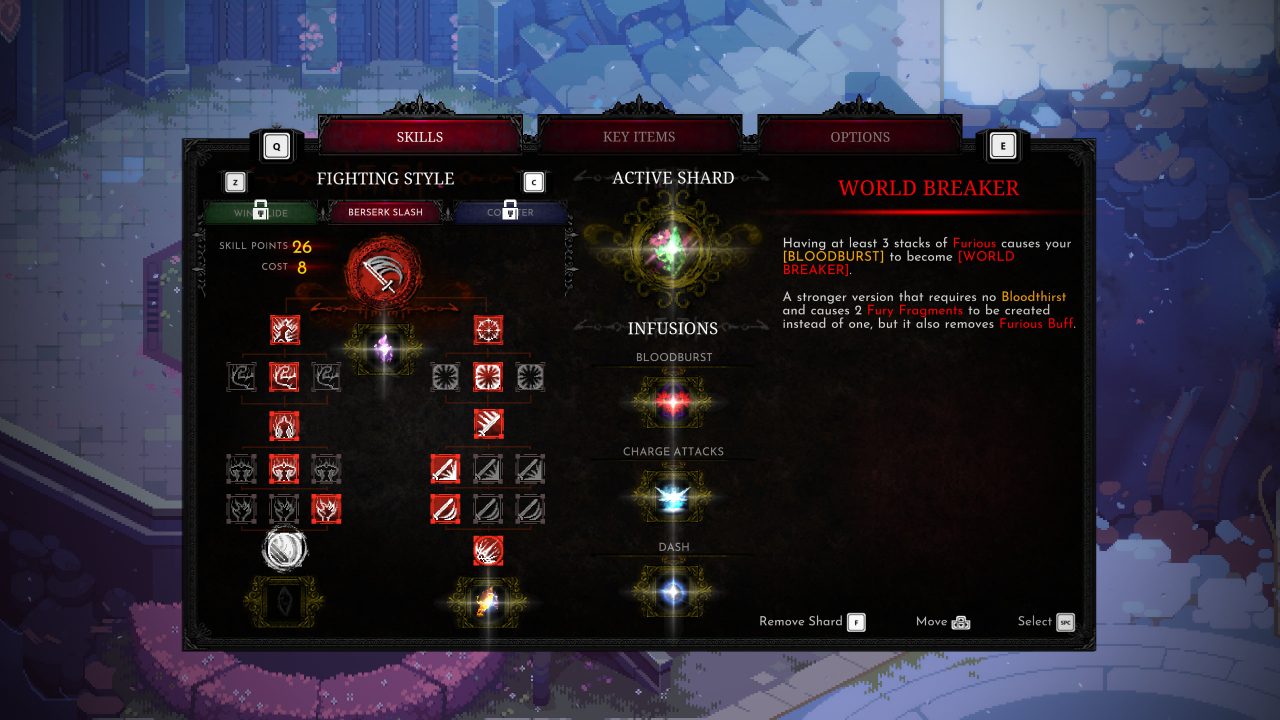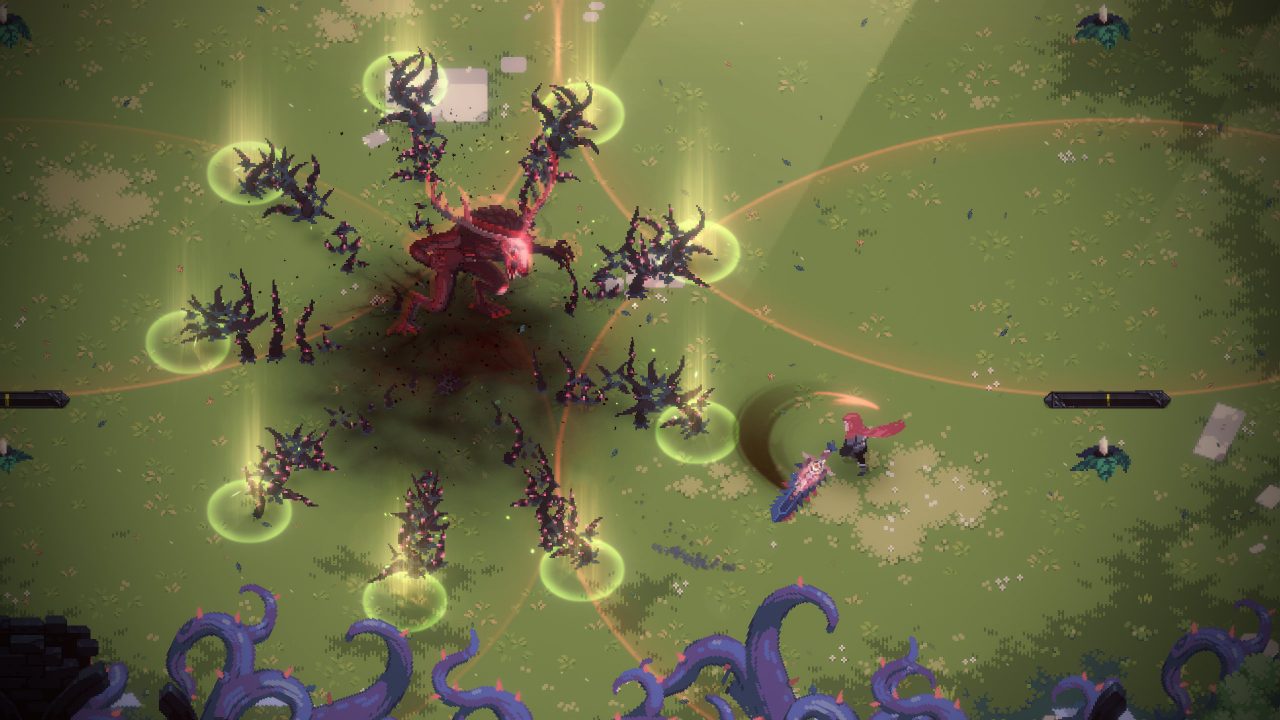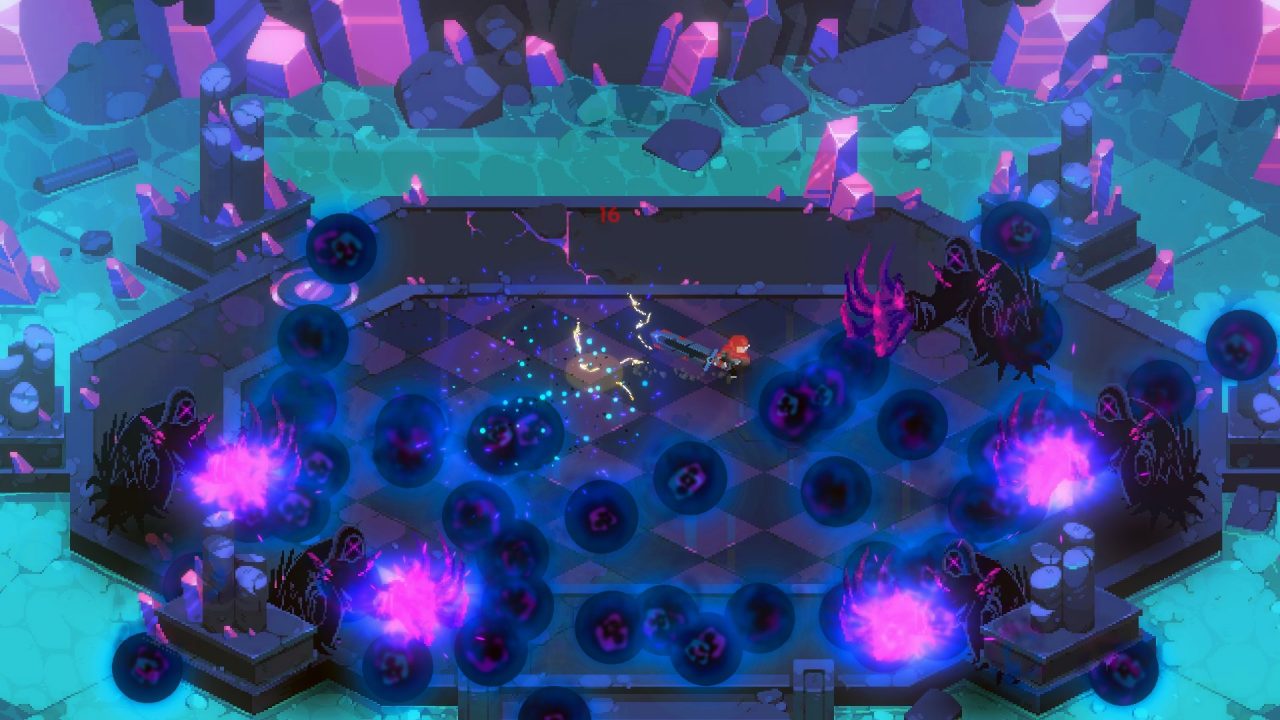On its surface, Dark Souls is a well-designed, crisp action RPG. Go from point A to point B, kill some enemies, die a few times (or a lot), find a bonfire, kill more skellies and die more, then fight a boss. Rinse and repeat. What’s fascinating is that it’s so incredibly deep that everyone can get something different out of the game. For some, Dark Souls is defined by its world, both in terms of lore and atmosphere. Others adore learning how to beat every single enemy as efficiently as possible. Some can’t wait to discover all the secrets as they slash or roll into every wall in the game. Griefers write all sorts of inspiring messages, and others just want to praise the sun. And of course, there are those who enjoy the intricately designed, memorable bosses.
But one way in which I differ from the vast majority of people who’ve played Dark Souls is my opinion of its difficulty. Most folks readily call other difficult games “Dark Souls hard” when describing the challenge. This never made sense to me, and I am by no means claiming people need to “git gud.” Bonfires are everywhere, shortcuts make getting around a snap, and the game absolutely overloads players with goodies like buffs and ores to enhance weapons. Worst-case scenario, you can always phone a friend and tag team a boss. I’ve never understood why Dark Souls is praised for its intense difficulty. If it were as difficult as word of mouth would have you believe, it certainly wouldn’t be the success that it is.
So what happens when a developer thinks Dark Souls is all about its supposedly punishing boss fights and wants to create a title based on this inspiration? Well, we get Eldest Souls, which is more of a teeth-grindingly tedious boss rush than it is a Souls-like. Sporting ten or so bosses, Eldest Souls is simply that: ten fights. Skeletons, peons, kobolds, golems, et al. need not apply, as the halls of the Citadel are vacant aside from a few friendly NPCs.

Our hero has come to thwart the Old Gods that have rained hell on civilization. Along the way, he has the opportunity to learn some history through the occasional item, left-behind scraps of paper, and wandering souls who have for some reason made this place their home. The developers have skillfully captured the storytelling method of Dark Souls; in other words, there is no real story unless you read into the bits of information littered about. The vibe of the writing and mythos feels quite Souls-like. If that’s your thing, you may be satisfied. Personally, I can’t stand this mode of storytelling.
Of course, you’re likely not here for the odd sentence or two every few steps. Navigating the top-down world can be a chore, but beacons exist everywhere to teleport here and there. Players who investigate every nook and have the sense to go back and talk to NPCs will on rare occasion find mild buffs to help them along the way. Most buffs come from skill trees and points earned after beating each boss.
Before we get to that, what is combat like? Most boss fights involve a hack-and-slash fest against a giant who has a variety of movesets and patterns that players have to learn in order to succeed. The protagonist is on the slower side, so a missed swing of the sword could result in a meaty hit or love tap depending on what the boss feels like doing. A perfectly executed boss fight might take about a minute, but the bosses are so powerful and have such a significant set of tools to wipe you out that banging your head against the desk might add to some of that playtime.

The developers predict that Eldest Souls will be about a ten-hour experience for most people, which if you’re counting at home, is about an hour per boss. Of course, the first boss takes almost no time, and the second boss only requires a bit of practice. After that, good luck. The sad reality is that the developers seem to think that excruciating, frustrating difficulty is what Dark Souls is all about, and I could not disagree more. As I mentioned earlier, Dark Souls is a phenomenal game because of its options and the ability to play how you want. Try a new weapon, improve a weapon, coat your weapon in lightning, use spells, grind out some levels, go to an entirely new part of the game, go to an old part of the game, spam healing items you’ve been stocking up, improve your Estus flask, and of course, get an NPC or friend to help you. In this game, however, no such options exist.
Eldest Souls only offers players the ability to respec a skill tree and choose one of three special abilities. Each special ability offers two skill trees. Every boss grants one skill point and one boss gem. Boss gems can be used to add unique properties to various abilities (dodge rolling, charging up an attack, etc.), while skill points provide passive buffs. These abilities and buffs, while helpful, do not drastically change the flow of battle. At the end of the day, a player’s prowess decides who wins, and while this is wonderful in its own right, it can also make every skill point or boss gem feel pretty ineffective. So my only reaction after beating a boss is relief that it’s over rather than a rush of pride or anticipation of some cool new toy to help me with the next fight.
The skill trees and their abilities are so unimpressive partly because the abilities aren’t flashy. Explosions and such allegedly happen, but in no way do the sounds or graphics give any indication that an ability has done anything of import. I can trust that my damage numbers have gone up by 10% under a certain condition, but all I’m aware of at any point in every single fight is that I need to land some blows before the boss caves my skull in.

While a close, scrutinizing eye might lead one to say that this is certainly an indie project with ho-hum visuals, the level of detail in the artwork is impressive. Bosses and what not animate well, and I enjoyed the journey in that respect. Prancing around the halls leaves something to be desired, as the still imagery or humble animations of the Citadel are not up to the same standard as the bosses. Similarly, the music capably carries fights and makes them a tad more bearable, but the sad fact is that the oppressively difficult gameplay shrouds everything else in lazy design.
If I could spec my character to be more agile, swing quicker, or get some extra toys, I would be able to tolerate the difficulty more, simply because I’d feel like I have agency over how I build my character. As it stands, with the lukewarm customization Eldest Souls offers, I never really felt like I was growing. Essentially, it’s just a game of waiting for an opening, getting some hits in, dodging at the right time, and praying to god that I don’t ever run out of stamina. Eldest Souls has a New Game+ mode where the bosses hit harder, players heal for less, and the enemies have significantly more health — as well as new moves — but who wants to go through that? If you’re hungry for a fresh Souls-like experience, this isn’t it. If you’re the type of player who craves a challenge and loves memorizing boss patterns, then this could be for you. Just don’t expect to have meaningful options.


